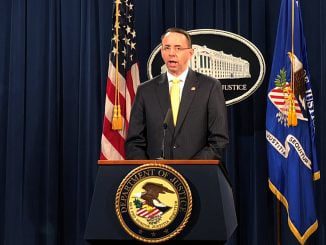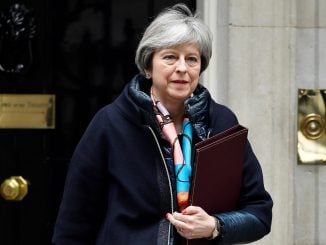Shortly, possibly even before this column is placed in print, The United States may be at war. It will start like most wars. One country, in this case Russia, will try to take control of another country, Ukraine. The Ukrainian government with its ties to the United States generally — and the Biden family in particular — will ask for assistance.
It may be a replay of World War I. That started when Austria-Hungary lost its Archduke to a Serb assassin in Bosnia. Austria-Hungary then called in its ethnic brothers from Germany to crush and conquer an embarrassingly weak Serbia. In return the Serbians, asked their tribal comrades, the Russians, to assist. The result was that millions died.
Both the major adversaries, Russia and Austria-Hungary were destroyed.
Ukraine has that potential. Russia will claim that Ukrainian assassins committed acts of terror. As Russia attacks — or, in its view, defends its ethnic cousins in Ukraine — Ukraine will ask for the assistance of the United States. And, just like the Great War, anything is possible.
Clearly, Vladimir Putin has decided to take a chance. His goal is to recreate the old Soviet Union and its sphere of influence across Central and Eastern Europe. Overall, this would involve the subjugation of not only Ukraine, but also NATO members Estonia, Latvia and Lithuania. It would also institute hegemony over the big prize, Poland. Given a strong NATO and a strong American strategic deterrent, that would be considered impossible.
But NATO is weak. Backed by American Democrats, NATO rebuked Donald Trump when Trump tried to make each member of the alliance build up its defenses. Its members are not concerned so much about Russia as they are concerned about a continuing supply of cheap labor from Eastern Europe and petrochemicals from Siberia. The latter is not dependent on freedom or democracy. Who rules the vassal states to the East is as unimportant to the EU as is the plight of the Chinese Uyghurs to the industrialists of the United States. Hence, there is no will to fight among most European members of NATO.
But, more importantly, The Unites States is also weak.
The status of the United States in 2021 is not too different from that of Russia in 1917. Currently, the American national spirit is being undermined by socialist authoritarians. In 1917 terms, these authoritarians would be called Bolsheviks. Just as the 1917 Russians were reeling from their constant defeats fighting the Germans and their allies, so the Americans were defeated and demoralized in Afghanistan. Russia did not possess the national will to fight World War I. By early 1918, it simply withdrew from participation in much the same way the United States grew tired and withdrew from Afghanistan and Vietnam.
Vladmir Putin is betting that challenges in Ukraine and Eastern Europe will exacerbate America’s advancing internal instability. He is also betting that NATO’s reluctance to fight together with America’s internal volatility will give him the “six inches of daylight” necessary to reconquer Eastern Europe and reestablish the Russian-Soviet Empire. He knows that America has never been defeated on the battlefield. In Vietnam and Afghanistan, America defeated itself. He is betting American insouciance happens again in Ukraine.
So, what can the United States do?
President Biden — or whoever is in charge of the United States government — must switch from a policy of internal confrontation and away from vaccine mandates, gender fluidity, nationalization of elections and racial division.
Both President Biden and Republican leaders must create a government of national unity focused on stability and patriotism. In order to ensure that Ukraine and Eastern Europe remain free and a massive war in Europe is averted, Americans must understand that “A house divided against itself cannot stand [and cannot fight for its mutual defense].
“Peace through strength” is more than a collection of aircraft carriers and hypersonic missiles. To deter aggression, the aggressor must be convinced that his adversaries have a strong will and will resist. If the United States and NATO want to keep Europe free, then both the Europeans and the Americans must show their unity and strength now. To do otherwise would be to allow “From Stettin in the Baltic to Trieste in the Adriatic” a second Iron Curtain to descend across the Eastern Europe, or worse yet, watch a new World War I unfold.



